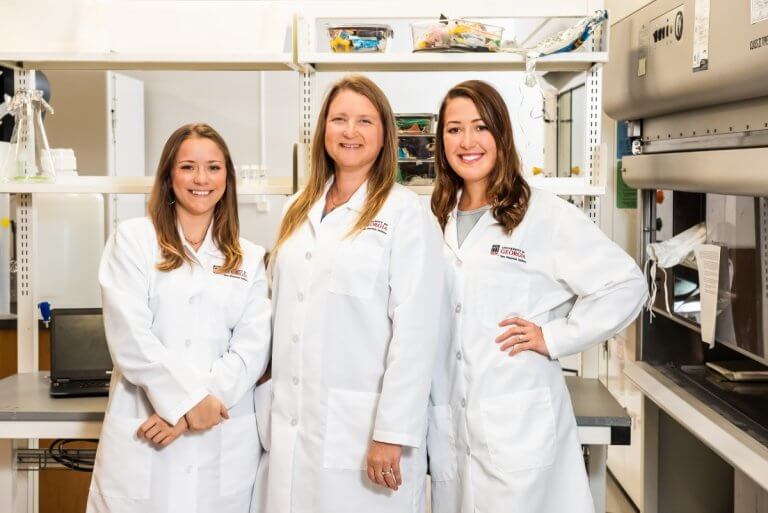
The engineering field has long been dominated by men. But why?
Women are sometimes plagued by the stereotype that engineering or STEM (Science, Engineering, Technology and Mathematics)-related disciplines, do not typically cater to them. Coupled with the misconception that men perform better in subjects like math, or other STEM-related subjects, can perpetuate the problem of underrepresentation of women in the field, making them much less likely to choose an engineering programme at university as a result.
This is a major loss of untapped talent to the world, especially in a time when rapid automation and technological advances are fuelling the need for more professionals in the field to meet modern day demands.
Despite this, the tide is shifting. Some universities are beginning to break the gender barriers to ensure all students – both male and female – are equipped with the full range of employability skills needed to thrive as engineers in the 21st-century.
With all that said and done, where should aspiring female engineers study engineering? Here are Study International’s picks for the top four engineering schools in North America you should consider…
COLLEGE OF ENGINEERING, UNIVERSITY OF GEORGIA (UGA) – USA

Source: University of Georgia
UGA’s College of Engineering is a stronghold for aspiring female engineers. Its clubs and societies offer a supportive platform for students to thrive, while active, campus-wide graduate student organisations provide support and professional development opportunities. These include the UGA Chapter of the Society of Women Engineers and Women in Science (WiSci).
WiSci, a university-wide student organisation, promotes equality in the sciences, offering opportunities for mentoring, networking and career development for all students. This not only acts as a platform for learners to connect with peers but also with mentors who could help them thrive. Their mentoring programme pairs experienced and less-experienced scientists together to support developing scientists.
UGA also has a strong representation of female engineering faculty members who are making waves in their respective fields. For example, Associate Professor of Engineering, Mable Fok, a recipient of several National Science Foundation (NSF) awards, specialises in photonics, the science of using light to perform similar functions as electronics but with a better performance. Her recent NSF grant requires her to create hardware that could use light to analyse the radio frequency spectrum, seek out spaces on the spectrum that aren’t being used and direct devices to those holes in the spectrum.
Meanwhile, UGA’s female engineering students are making an impact under this supportive ecosystem. PhD in Biological Engineering student, Priyadarshini Singha, is exploring new methods of preventing infections and thrombosis caused by medical devices such as central venous catheters, which could lead to lowering healthcare costs and shorter hospital stays for people around the world.
WATERLOO ENGINEERING, UNIVERSITY OF WATERLOO – CANADA

Source: University of Waterloo
This public research university is located in Ontario. Waterloo’s engineering school is not only Canada’s largest, it’s also ranked among the world’s top 50 engineering schools. Unsurprisingly, this university graduates the largest number of engineers at both the undergraduate and graduate level in Canada.
The school offers 15 bachelor degrees, including programmes in emerging multidisciplinary areas such as architectural, biomedical, mechatronics, nanotechnology and environmental engineering. Prospective students would be interested to note that the school also offers Complementary Studies, providing you with instruction in the humanities and social sciences, engineering economics, communication and the impact of technology on society to complement your technical knowledge.
It also provides 37 graduate degrees, including course-based and research master’s, and doctoral studies.
Studies aside, the school also has a bustling student life – the Women in Engineering (WiE) club is dedicated to supporting female engineers and university students, with the goal of encouraging and empowering the next generation of women to develop an interest in STEM and careers in engineering. Prospective female students may also want to hear what alumni Cassandra Cole has to say about what it means to be a female engineering student during a TEDxUW talk.
Meanwhile, the Waterloo Engineering Society is the most active student society on-campus and across all of Canada, aiming to unify students in the Faculty of Engineering and provide resources for its members to develop and succeed as undergraduate students and beyond.
BERKELEY COLLEGE OF ENGINEERING, UNIVERSITY OF CALIFORNIA, BERKELEY – USA

Source: UC Berkeley
UC Berkeley, a public research university in the US, is ranked 15th in the Times Higher Education World University Rankings 2019. Meanwhile, the university has retained its third sport in the latest US News and World Report rankings for best engineering graduate schools.
The school is known for offering a wide range of engineering sub-disciplines for its undergraduate and graduate programmes. Undergraduate offerings include Bioengineering, Civil and Environmental Engineering and Electrical Engineering and Computer Sciences, while their master and doctorate programmes also include Materials Science and Engineering, Mechanical Engineering and Nuclear Engineering.
The school prides itself in promoting diversity, equity and inclusion. It supports women and underrepresented minorities, among others, in their engineering programmes, helping them develop academically and professionally. It also provides leadership development, such as the Women Invested in Lifelong Leadership (WILL) seminar, which connects students with female leaders from industry, academia and the public sector.
This is in addition to programmes aimed at increasing the number of non-traditional applicants admitted into the college. These include the Overnight Host Program for women admits, in partnership with Berkeley’s chapter of the Society of Women Engineers; and Girls in Engineering, a programme to encourage and support girls in pursuit of STEM.
COCKRELL SCHOOL OF ENGINEERING, UNIVERSITY OF TEXAS AT AUSTIN – USA

Source: University of Texas at Austin
This school has seven engineering departments: Aerospace Engineering and Engineering Mechanics, Biomedical Engineering, Chemical Engineering, Civil, Architectural and Environmental Engineering, Electrical and Computer Engineering, Mechanical Engineering and Petroleum and Geosystems Engineering.
Cockrell School has 11 engineering majors and additional minor and certificate programmes for undergraduate students, as well as multidisciplinary master’s and PhD programmes for graduate students.
The Women in Engineering Program (WEP) connects students, educators and professionals to the world of engineering through recruitment initiatives, supportive structures and educational services to promote the success and advancement of women in engineering. WEP works towards achieving a goal of female engineering enrollment to match the population percentage of women in Texas at 50 percent.
Meanwhile, the Society of Women Engineers (SWE) is an organisation that empowers and advocates women in the engineering and technology fields, promoting inclusivity and diversity in the engineering industry and academia. By joining this society, students can engage in outreach activities, where volunteers can serve as counsellors and mentors by helping young girls work together to rebuild the cities that have been destroyed. Additionally, students can also enjoy professional development and enjoy coffee chats with company representatives in various industries for tailored advice, and the like.
*Some of the institutions featured in this article are commercial partners of Study International
Liked this? Then you’ll love…
Waterloo Graduate Engineering Studies: From researchers to industry experts
Research that makes an impact at the University of Georgia College of Engineering







